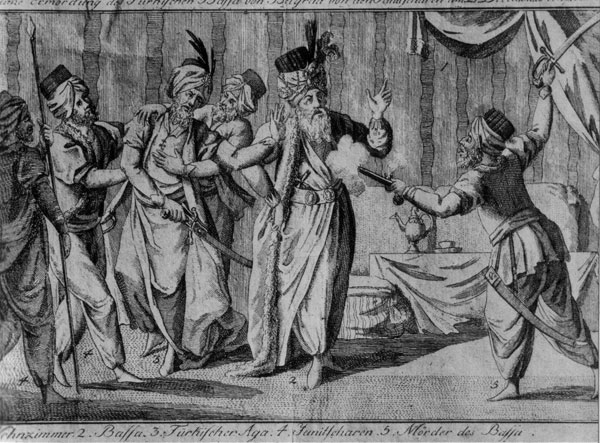|
Pavle Cukić
Pavle Cukić (Serbian: Павле Цукић; 1778 - 1817) was a Serbian duke and a revolutionary from the time of the First Serbian Uprising and Second Serbian Uprising. Biography Pavle Cukić was a native of Krčmar, the Lepenica principality of the Kragujevac nahija. In 1812, by the decision of the Governing Council, Cukić was removed from the position of a duke, due to abuses in the performance of his duties. He decided to desert, and a state arrest warrant was issued along with a death sentence. After he voluntarily surrendered, he received a pardon, but no sooner he got into a disagreement with the newly appointed duke of the same principality, Miloš Saranovac. After a misunderstanding and rebellion against Prince Miloš, Duke Pavle Cukić was killed in Rogača near Sopot, where he was buried. Miloš's wrath had no bounds he dealt ruthlessly with disobedient subordinates and executed the most famous revolutionary no matter who they were, including Karađorđe, Petar N ... [...More Info...] [...Related Items...] OR: [Wikipedia] [Google] [Baidu] |
First Serbian Uprising
The First Serbian Uprising ( sr, Prvi srpski ustanak, italics=yes, sr-Cyrl, Први српски устанак; tr, Birinci Sırp Ayaklanması) was an uprising of Serbs in the Sanjak of Smederevo against the Ottoman Empire from 14 February 1804 to 7 October 1813. Initially a local revolt against Dahije, renegade janissaries who had seized power through a coup, it evolved into a revolution, war for independence (the Serbian Revolution) after more than three centuries of Ottoman rule and short-lasting Austrian occupations. The janissary commanders murdered the Ottoman Vizier in 1801 and occupied the sanjak, ruling it independently from the Ottoman Sultan. Tyranny ensued; the janissaries suspended the rights granted to Serbs by the Sultan earlier, increased taxes, and imposed forced labor, among other things. In 1804 the janissaries feared that the Sultan would use the Serbs against them, so they Slaughter of the Knezes, murdered many Serbian chiefs. Enraged, an assembly chose Ka ... [...More Info...] [...Related Items...] OR: [Wikipedia] [Google] [Baidu] |
Šabac
Šabac (Serbian Cyrillic: Шабац, ) is a city and the administrative centre of the Mačva District in western Serbia. The traditional centre of the fertile Mačva region, Šabac is located on the right banks of the river Sava. , the city proper has population of 53,919, while its administrative area comprises 118,347 inhabitants. Name The name ''Šabac'' was first mentioned in Ragusan documents dating to 1454. The origin of the city's name is uncertain; it is possible its name comes from the name of the city's main river, the Sava. The city is known by a variety of different names: ''Zaslon'' in medieval Serbian, ''Szabács'' in Hungarian, ''Böğürdelen'' in Turkish, and ''Schabatz'' in German. History Archaeological evidence attests to more permanent settlement in the area from the Neolithic. In the Middle Ages, a Slavic settlement named ''Zaslon'' existed at the current location of Šabac. The settlement was part of the Serbian Despotate until it fell to the Otto ... [...More Info...] [...Related Items...] OR: [Wikipedia] [Google] [Baidu] |
Dukes In Serbia
Duke is a male title either of a monarch ruling over a duchy, or of a member of royalty, or nobility. As rulers, dukes are ranked below emperors, kings, grand princes, grand dukes, and sovereign princes. As royalty or nobility, they are ranked below princess nobility and grand dukes. The title comes from French ''duc'', itself from the Latin ''dux'', 'leader', a term used in republican Rome to refer to a military commander without an official rank (particularly one of Germanic or Celtic origin), and later coming to mean the leading military commander of a province. In most countries, the word ''duchess'' is the female equivalent. Following the reforms of the emperor Diocletian (which separated the civilian and military administrations of the Roman provinces), a ''dux'' became the military commander in each province. The title ''dux'', Hellenised to ''doux'', survived in the Eastern Roman Empire where it continued in several contexts, signifying a rank equivalent to a captain ... [...More Info...] [...Related Items...] OR: [Wikipedia] [Google] [Baidu] |

